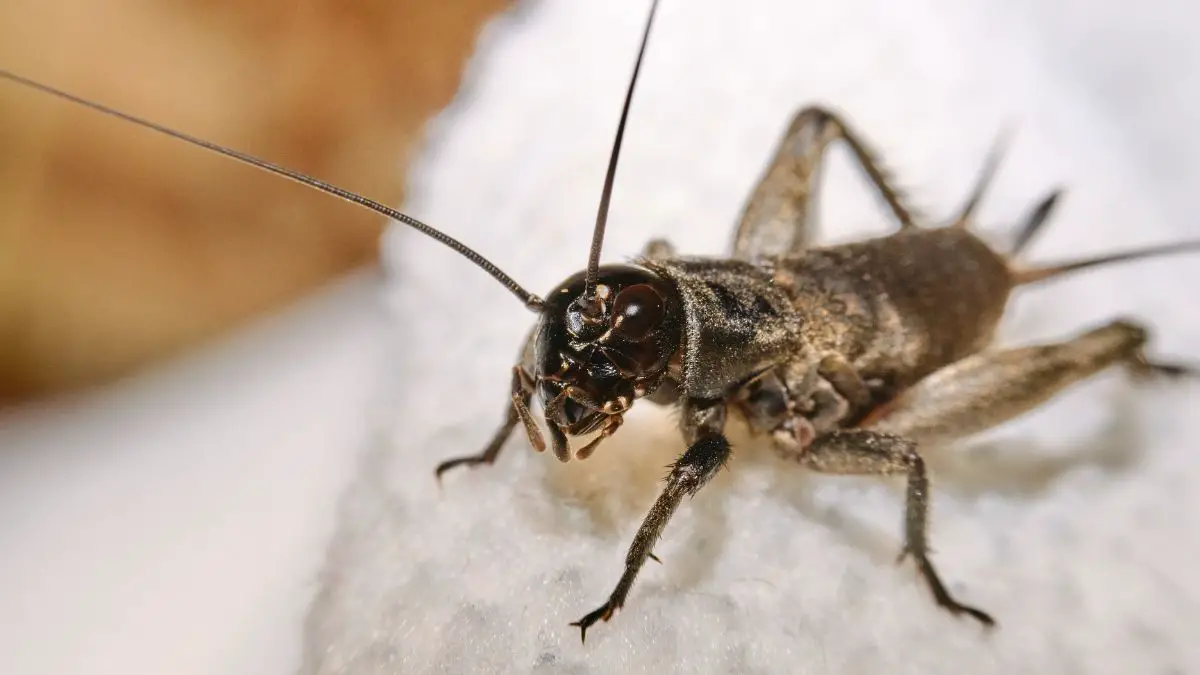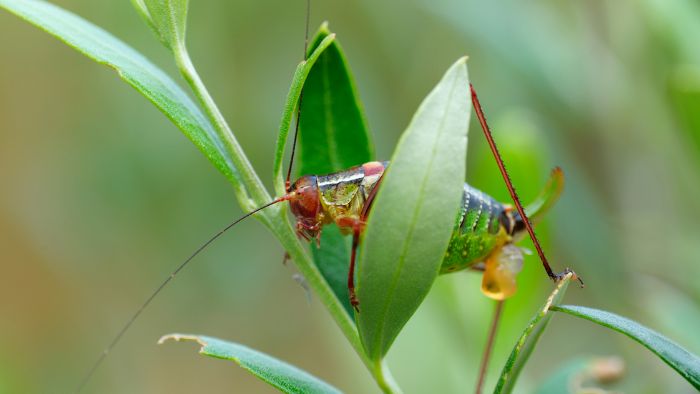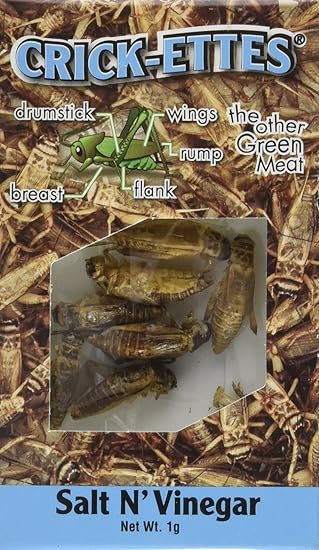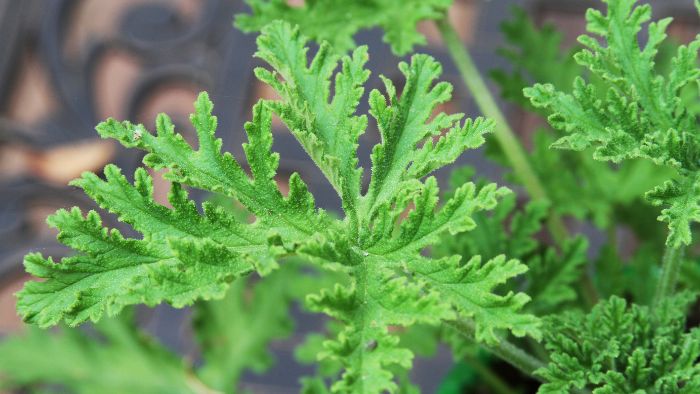Last Updated on March 16, 2023 by Cristina
Does vinegar kill crickets? Do you have irritating crickets in your house that you want to get rid of? Have you looked inside your pantry, looked at everything you have and asked yourself the question; does vinegar kill crickets? In this article, we will discuss all you need to know about this topic.
Does Vinegar Kill Crickets?
Acetic acid, commonly vinegar is a common household ingredient. It can be found in almost every pantry and is commonly used for cooking purposes. Did you know that is also a natural cricket repellent?
It is safe for both pets and animals, so you can comfortably use it for killing crickets around your house without worrying about the safety of children or pets. As long as you wipe the residue afterwards. Simply pour vinegar into a bottle and directly spray it directly on the crickets.
Be sure to use the distilled type of vinegar, as it works best compared to other types.
What Are Crickets?
Crickets are orthopteran insects that are related to both bush crickets and grasshoppers. They typically have cylindrical-shaped bodies with round heads and long antennae.
Crickets are distributed throughout the world and like warm temperatures, and as such have higher diversities in warmer climates. They occur in different habitats and can be a nuisance when they decide to make themselves comfortable in our homes.
All that chirping that they do can get really irritating and disturb our peace. They may also lay eggs on surfaces inside our house, posing a health risk if not taken care of on time. If you notice an infestation, it is best to take care of it before it becomes a problem.
There are various methods of killing crickets. Some are better than others in terms of effectiveness, they have different rates of killing the insects and have different levels of safety. Some of the best and safer methods to use are ones where you make your own remedies at home. This is because you are in charge of what you put in them, and you are guaranteed safety. One of the best products to use, that can be found in your kitchen is vinegar.
How To Kill Crickets Using Vinegar
To best and effectively kill crickets using vinegar, make a mixture of 1 part vinegar to five parts water. Spray this mixture directly on the crickets. After waiting a while and you see that it has not worked as well as you would have liked, you can increase the dosage of vinegar in the mixture. Be careful when spraying on surfaces that are acid-sensitive as the vinegar may cause damage.
Mixing salt and vinegar, and praying the mixture on crickets the same way as described above will also do wonders to get rid of your cricket problem. If you are thinking of buying this mixture instead of making it yourself, be careful of purchasing these salt and vinegar crickets. These are not for getting rid of crickets but rather crickets bites that you can eat, because crickets are actually a nutritious food and a good source of protein.
What Kills Crickets Instantly?
Using vinegar is a humane way of killing crickets. It may take time to accomplish the goal but they will ultimately kill the crickets. There are other options, which may be faster but not as environmentally friendly as vinegar.
Some good choices for instant cricket killers include:
- Diatomaceous earth
- Cricket traps
- Cricket glue traps
- Boric acid
- bug sprays such as this one
What Other Insects Can Vinegar Kill?
Vinegar can be used as an all-purpose insect killer. This means that it does not only kill crickets but will kill other insects as well. Some of the other insects that it can kill include ants, cockroaches, spiders and other bugs.
Vinegar can also be used as a disinfectant to get rid of pathogens from bugs that may get squashed on your counters or other surfaces at home.
As you can see, this vinegar mixture is versatile and very useful around the house. It may be useful to just have a mixture at all times. This will come in handy if you discover an insect infestation or need to quickly clean or disinfect anything around the house.
What Smell Do Crickets Hate?
In addition to vinegar, there are other products found around the house that you can use as a quick fix to get rid of crickets. These products have smells that crickets absolutely hate and will want to get away from. These include essential oils such as:
- Citronella oil
- lemon oil
- Peppermint oil
Crickets will also hate the smells of other products with strong smells such as garlic, onions and herbs such as rosemary.
Conclusion – Does Vinegar Kill Crickets?
If you have had enough of cricket or insect infestations in your house, and are looking for a safe and easy way to get rid of them, you should look no further than your pantry or grocery storage cabinet.
Vinegar is a safe, effective and environmentally friendly way of getting rid of a range of insects like crickets. You can add other ingredients such as salt and dish soap to improve the effectiveness of the mixture.
We also discussed other options you might want to consider to bring your cricket infestation problems to an end. You can choose whatever option that will best suit your needs.
Remember that crickets themselves are not harmful, so if you do not have to kill them you can find a way of taking them and putting them outside where they will not disturb you, especially if it is just one or two insects. They are important creatures in the ecosystem and it would be noble of you to help conserve them.
If you enjoyed reading this article and found it useful, please see free to share it with your family and friends.

An aquaculture specialist and freelance writer. Passionate about anything sustainable living, such as growing your own food, and if you can do it in conjunction with fish farming, even better! I currently work as an aquaculture researcher where I can expand and share my knowledge and skills on aquaculture, crop farming and adding value to wastewater by using it to grow food products. I enjoy reading and learning as much as possible, and writing is another avenue for me to share the knowledge I gain with others. I want my writing to inspire people to try their hand at gardening, whether indoors or outdoors. You can even start by keeping a few houseplants indoors to help you gain a bit of confidence if you need to.






